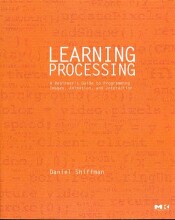Computer Hardware - Review Questions Chapter w
14 important questions on Computer Hardware - Review Questions Chapter w
FAT is defined as:
A. A table consisting of master boot record and logical partitions
B. A table created during the format that the operating system reads
to locate data on a drive
C. A table consisting of file names and file attributes
D. A table consisting of file names, deleted file names, and their attributes
contains pointers to clusters located on a drive.
Which selection keeps track of a fragmented file in a FAT file system?
A. File allocation table
B. Directory structure
C. Volume boot record
D. Master file table
in the cluster run until the last cluster is reached, which is marked as EOF.
If the FAT table lists cluster number 2749 with a value of 0, what does
this mean about this specific cluster?
A. It is blank and contains no data.
B. It is marked as bad and cannot be written to.
C. It is allocated to a file.
D. It is unallocated and is available to store data.
which means it is freely available to store data.
- Higher grades + faster learning
- Never study anything twice
- 100% sure, 100% understanding
The NTFS file system does which of the following?
A. Supports long file names
B. Compresses individual files and directories
C. Supports large file sizes in excess of 4GB
D. All of the above
How many clusters can a FAT32 file system manage?
reserved by the file system; however, this is a theoretical maximum
and there is an MBR-imposed limit of 67,092,481 clusters, which
means it is capable of supporting a partition size of 2 terabytes.
The FAT tracks the xxx............ while the directory entry tracks the xxx ________.
A. File name and file size
B. File’s starting cluster and file’s last cluster (EOF)
C. File’s last cluster (EOF) and file’s starting cluster
D. File size and file fragmentation
directory entry maintains the file’s starting cluster number.
How many copies of the FAT does each FAT32 volume maintain in its default
configuration?
A. One
B. Two
C. Three
D. Four
A file’s logical size is displayed as?
A. The number of sectors needed that the logical file contains
B. The number of clusters that the logical file contains
C. The number of bytes that the logical file contains
D. The number of bits that the logical file contains
contains.
A file’s physical size is?
A. Always greater than the file’s logical size
B. The number of bytes in the logical file plus all slack space from the end of the
logical file to the end of the last cluster
C. Both A and B
D. None of the above
file’s logical size is the amount of bytes that the actual file contains. A file’s
physical size can be the same as its logical size.
A directory entry in a FAT file system has a logical size of:
A. 0 bytes
B. 8 bytes
C. 16 bytes
D. One sector
By default, what color does EnCase use to display directory entries within a directory structure?
A. Black
B. Red
C. Gray
D. Yellow
they do not contain any actual data, EnCase displays the information in red.
What is the area between the end of a file’s logical size and the file’s physical size
called?
A. Unused disk area
B. Unallocated clusters
C. Unallocated sectors
D. Slack space
to as slack space.
What does EnCase do when a deleted file’s starting cluster number is assigned to another file?
A. EnCase reads the entire existing data as belonging to the deleted file.
B. EnCase only reads the amount of data from the existing file that is associated
with the deleted file.
C. EnCase marks the deleted file as being overwritten.
D. EnCase does not display a deleted file name when the data has been
overwritten.
reassigned to an existing file, it reports the previously deleted file as being
overwritten.
What information does a file’s directory entry in a FAT file system store about itself?
A. File name
B. Date/time
C. File extension
D. Starting cluster (extent)
E. All of the above
exception of the actual data itself.
The question on the page originate from the summary of the following study material:
- A unique study and practice tool
- Never study anything twice again
- Get the grades you hope for
- 100% sure, 100% understanding






























